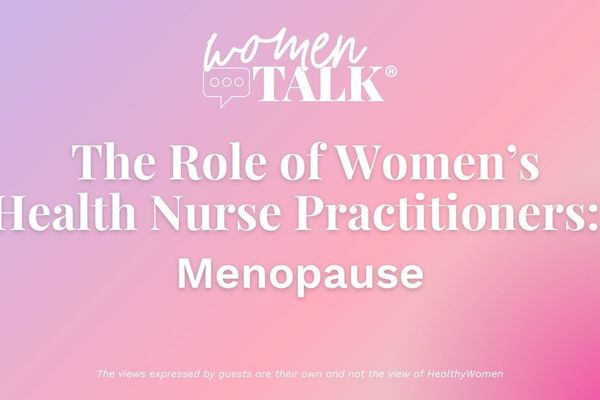The issue of hormone therapy to treat menopausal symptoms used to be a simple one. You had hot flashes, sleep disturbances, vaginal changes—you took hormones. Worried about your bones and heart—you took hormones.
All that changed, of course, in the summer of 2002 with the announcement of the results of part of the Women's Health Initiative (WHI), the first-ever, long-term study of the effects of hormone therapy (HT) on postmenopausal women. One of the study's main goals was to investigate whether using estrogen (Premarin) or estrogen plus progestin (Prempro) as part of a hormone therapy regimen could prevent coronary heart disease in healthy women between the ages of 50 to 79. The investigators chose these two hormone products to study, because at the time they were the most-used form of hormone therapy. Researchers abruptly ended the Prempro arm three years early, because initial results showed an increased risk of breast cancer, heart disease, blood clots in the lungs and stroke in women taking hormone therapy.
You know what happened next—millions of women panicked, ditched their hormone therapy and frantically searched for options. A couple of years later, when the estrogen-only (Premarin) arm of the WHI found an increased incidence of stroke in women on the drug with no cardiovascular benefits, it seemed that hormone therapy as a treatment for menopausal symptoms would go the way of the typewriter.
But don't write off estrogen therapy yet. As researchers looked more closely at the WHI results, they found the data wasn't as dire as first presented. Experts note that the WHI study included women who were more than 10 years older (average age 64) than the average hormone therapy user. And, in fact, a 2006 publication based on data from the long-running Nurse's Health Study found that women who started hormone therapy soon after menopause reduced their risk of coronary heart disease 30 percent.
Plus, the risks identified in the WHI and a similar study called the Heart and Estrogen/progestin Replacement Study (HERS) were actually quite small, a message that finally began resonating with women and their doctors. Basically, of 10,000 women taking Prempro, over the course of one year, 23 additional women would develop dementia, eight more would have blood clots in the lung, strokes or breast cancer, and seven more would have heart attacks or other coronary events, than women not taking Prempro. And don't forget the study's good news: Over the course of a year, those 10,000 women taking Prempro would have five fewer hip fractures and six fewer incidences of colon cancer.
Further analysis of the data, announced in April 2006, revealed that women taking estrogen-only therapy (ET) had no increased risk of breast cancer. Estrogen-only therapy is typically given only to women who no longer have a uterus.
However, a 2010 update of the WHI study, using 11 years of follow-up, showed that breast cancer had spread to the lymph nodes at a significantly higher rate in women taking the combined estrogen-progestin hormone therapy than in nonusers. One piece of good news is that the risks associated with hormone therapy apply only to women who are currently taking or who have recently taken combined hormone therapy. Once you stop taking hormone therapy, your breast cancer risk drops to that of the general population (if you have no other risk factors).
Confused? Don't be. Here are the basics you need to know based on extensive evaluation of existing data by the North American Menopause Society (NAMS):
- The primary reason to use hormone therapy—whether estrogen alone (for women without a uterus) or estrogen plus progesterone (for women with a uterus)— is for treatment of moderate to severe menopause symptoms, primarily hot flashes, sleep disturbances from night sweats and vaginal changes. HT has no significant impact on general health or quality of life factors, such as energy, mental health, symptoms of depression or sexual satisfaction.
- If you use HT, start at the lowest dose for the shortest amount of time needed to gain relief. NAMS recommends the combined estrogen-progestin therapy not be used longer than three to five years, but because estrogen-only therapy carries fewer risks, it can be used for longer durations.
- If you have had blood clots, heart disease, stroke or breast cancer, your health care provider may not recommend HT.
- In most healthy women below age 60, HT will not increase your risk of heart disease, though studies also have shown that HT does not help women with heart disease and may make existing heart conditions worse. (Some research shows that ET may decrease risk of heart disease when taken early in the postmenopausal years; study is continuing.)
- Talk with your health care professional about the appropriate form of hormone therapy for your symptoms. For instance, if your primary symptom is vaginal dryness, then a vaginal form of estrogen, such as a pill inserted into the vagina or a cream, might be best.
- Hormone therapy can still be used to prevent osteoporosis for women at high risk of the condition (most forms of hormone therapy are approved for this purpose), but you and your health care professional should weigh the pros and cons of hormone treatment against other osteoporosis therapies.
And keep in mind that there are literally dozens of hormone therapy formulations—from low-dose pills to patches, rings and even a clear, odorless gel you rub on your arm. Biodentical hormone options—FDA-approved hormone formulations that are structurally identical to the substance as it naturally occurs in your body—are included in this range of offerings.
Bottom line: Only you and your health care professional can decide if hormone therapy is right for you, which type is best and for how long you should use it.
- JoAnn Pinkerton, M.D., Speaks With HealthyWomen About Hormone Therapy for Menopause - HealthyWomen ›
- Hormone Therapy Saved My Life After Doctors Dismissed My Perimenopause Symptoms - HealthyWomen ›
- Is Hormone Therapy Right for You? - HealthyWomen ›
- HRT: The (Current) Upshot - HealthyWomen ›
- Evaluating Hormone Therapy - HealthyWomen ›
- Curious About Hormone Treatment? - HealthyWomen ›
- Endometriosis and Hormone Therapy - HealthyWomen ›







